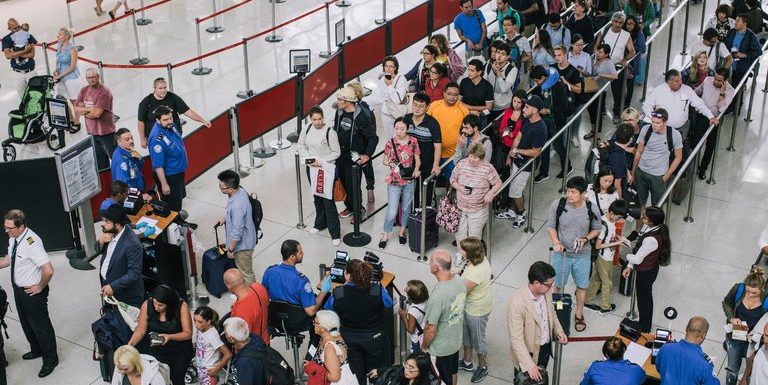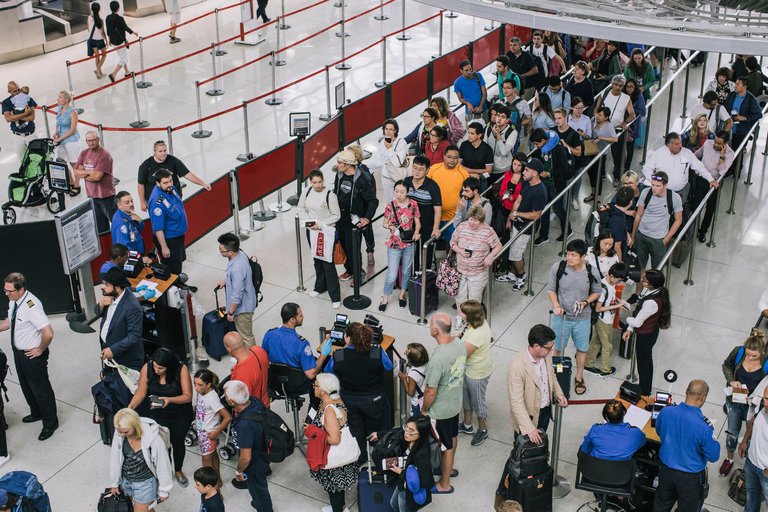Last week, Pew reported that nearly two-thirds of Mexicans held a negative opinion of the United States, more than double the figure of two years ago, which stood at 29 percent.
“It’s not a reach to say the rhetoric and policies of this administration are affecting sentiment around the world, creating antipathy toward the U.S. and affecting travel behavior,” said Adam Sacks, the president of Tourism Economics.
In response to a Facebook post by The New York Times, European readers overwhelmingly cited the Trump administration and its policies as reasons for avoiding or canceling trips to the United States.
“We are British Muslims and live in London,” Sabaa Farrukh wrote. “We wanted to visit N.Y.C. this summer but decided against it simply because we felt we wouldn’t be welcome there and didn’t want to waste precious holiday time in case there was a problem at passport control at the airport.”
Others cited violence and safety. Marika Treichel, who lives in Denmark, wrote, “I have always dreamed of visiting the US. But the rise of gun violence and political chaos has made me want to cancel all future travels to the U.S. until I can feel safe as a tourist.
This has been a strong year for the U.S. dollar, which makes travel more expensive for other currencies — though exceptions make that an unsatisfying explanation for the tourism drop. The Canadian dollar, for example, is weaker than it has been in previous years (despite a summer surge), yet Canadian tourism to the United States was up 14.8 percent January through April.
Within Europe, the tourism declines were largest in Switzerland at nearly 28 percent, Belgium at 20 percent and Britain at 15.5 percent. Britain accounts for the largest share by country of European arrivals in the United States, with 4.5 million tourists last year, making its slowdown significant. (Asian tourism was about the same as last year — up .6 percent — mainly due to a surge of South Korean travelers, up over 15 percent in the first quarter.)
“The international travel market is ultracompetitive, and the U.S. is falling behind,” said Roger Dow, the president and chief executive of the U.S. Travel Association, a nonprofit that promotes travel to and within the United States, in a statement.
A report released in April by the World Economic Forum showed the United States falling two spots in its rankings of the top 10 most popular countries for tourism in the world. The United States fell to number six, passed by both Japan and Britain.
The economic picture is less straightforward, however. The Commerce Department’s National Travel and Tourism Office reported a 2.5 percent increase in spending by international visitors to $83.4 billion in the first four months of the year compared to the same period in 2016.
Some of the decline in first quarter results may be because of the shift of the Easter and Passover holidays, when travel usually spikes. Those occurred in March of 2016 and April this year, possibly skewing first quarter figures. April figures ease the overall decline of foreign visitors to the United States from 4.2 percent to 1.2 percent. A boost in arrivals from Canada, up 7.8 percent through April after two years of declines, helped offset slowdowns from Mexico at 4.9 percent for the first four months of the year and Britain. at 6.9 percent for the same period.
Factoring in the April figures brings the loss to the U.S. economy to $1.7 billion, according to Tourism Economics.
Some tour operators have already felt the freeze. Intrepid Travel reported a 24 percent decrease in bookings to the United States this year to date compared to the same period last year, while trips to Canada are up 40 percent.
“Given the current political and social climate, now is an especially important time for the travel industry to stand for open borders, inclusivity and the celebration of diversity,” wrote Leigh Barnes, the regional director for Intrepid Travel, in an email.
Security concerns may be another factor. Through government travel advisories, countries including New Zealand and Britain have warned their citizens that travel within the United States represents some risk based on the threat of terrorist attacks.
Lucy Taylor, an Australian who is spending several weeks this summer and fall visiting the United States with her husband, altered the couple’s itinerary based on anticipated xenophobia.
“We decided not to do a road trip across the U.S. and just to stick to blue states,” she said. “We weren’t sure what kind of reception we would have.
courtesy= nytimes.com



